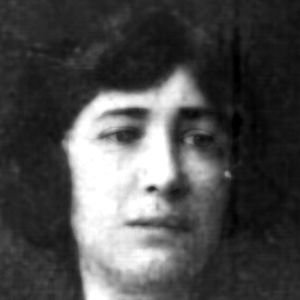Miss Hilda Slayter, of Halifax, a survivor of the Titanic disaster, arrived in Vancouver from the East on Monday, and is a guest of Mr. and Mrs. P. G. Shallcross, of 958 Broughton street. Though heretofore she has declined to talk for publication, Miss Slayter yesterday consented to give The Sun her impressions of the great sea tragedy.
"Creating scarcely a ripple upon a moonlit sea that was as quiet and peaceful as a millpond, the great ship sank beneath the waves," said Miss Slayter. "Her lights made the night around her as bright as day until she disappeared. Just before the lights went out arose a long, moaning walk which seemed to come from a great distance. It was the last cry of the souls she carried into the depths with her.
"Almost immediately afterward came a muffled explosion. Then there was a second explosion. The great ship had disappeared amid the field of ice through which she had been tearing her way, leaving the seas as calm and untroubled as before her fatal plunge. As the lights went out somebody shouted 'Hold tight for big waves!' But no big waves came."
Heroic Behavior of Crew.
Like other of the survivors, Miss Slayter cannot say enough for the heroic behavior of the men of the ship.
"The men simply acted splendidly," she said. "While so much that is incorrect has been published about the terror of the persons aboard, too much has not been said of the heroic self-control not only of the men passengers, but of the crew. I gathered but a fleeting impression of things and was excited like the other women until the men told us there was no danger and to get into the boats.
"I was in my berth when the crash came. I do not know what time it was. Our clock, which was not keeping good time, showed ten minutes to twelve. There was a slight jar, just enough to provoke inquiry. I rang for our steward who said he would let us know if anything happened. I heard a lot of shuffling feet on the decks, but apparently no excitement. Then a voice cried out, and it seemed to come from a long way off, 'All on deck and put on the life belts.'
"I dressed hurriedly. I took plenty of time and put on warm clothes. It was a good thing I did. Those of us with extra clothes gave them to others in our boat who had got out hastily and were not warmly clothed.
Discipline Maintained.
"The boats were putting off as I reached the deck. Everything was very orderly and discipline was perfectly maintained. I cannot say too much for the discipline of the crew and passengers. Some of the women became excited. The men talked to them and they were easy to quiet, for the great broad deck seemed perfectly safe – more safe than the small boats.
"I was one of the last off the ship. We assisted one another to put on life belts. Then I was grabbed by a man who passed me along a great row of men standing near the rail, and was hurried along the deck so fast I nearly lost my feet.
"I was put into boat No. 13 as it was being lowered. At that we might have lost our lives. There were sixty-five persons in No. 13. No. 14 was also being lowered. It was coming down directly above us. We were so crowded nobody could find the [unreadable]-trigger that releases the boat. But a sailor above saw our predicament and cut the ropes just in time. It was lucky for us he did so, for the other boat was descending right on top of us.
Cook's Boys Rowed.
"We had nobody to row by the cook's boys, and they, although they did not know anything about it, rowed manfully. We were away from the ship about three-quarters of an hour when she sank. She was aglow with lights right up to the last and was plainly visible. As the lights went out, and I presume she was about under water then, there came a long shout, and I supposed then it was voices shouting for our boats to concentrate. But I know now what it was."
Miss Slayter gave a little shiver at the recollection.
The only officer Miss Slayter met while the boats were being got ready was a petty officer. As he assisted her into the boat he said: "That is my boat, but I have orders to remain and assist in keeping order in the steerage." He was not among the survivors.
The passengers had been told the Olympic was to pick them up. Many stories told of the last scenes aboard the Titanic were greatly overdrawn in the first excitement after the landing of the Carpathia, Miss Slayter said. There was no more welcoming sight to her and the rest of the survivors than the approach of the Carpathia after they had been several hours in the boats, drenched with spray and exhausted from exposure.
Miss Slayter is the daughter of the late Dr. W. B. Slayter, of Halifax, N.S. She has spent several years abroad and like many others desired to return to America on the maiden voyage of the world's greatest ship. She expects to remain several days in Vancouver.
We would like to thank Wolfric Rogers for contributing this article to the Archive. If you would like to contribute a primary source to Titanic Archive, please contact us.
Source Reference
Title
Miss Slayter's Story of Tragedy
Survivor
Hilda Mary SlayterDate
May 4, 1912
Newspaper
Vancouver Sun
Copyright Status
Public DomainThis is item can be used freely as part of Titanic Archive’s Open Access policy.
